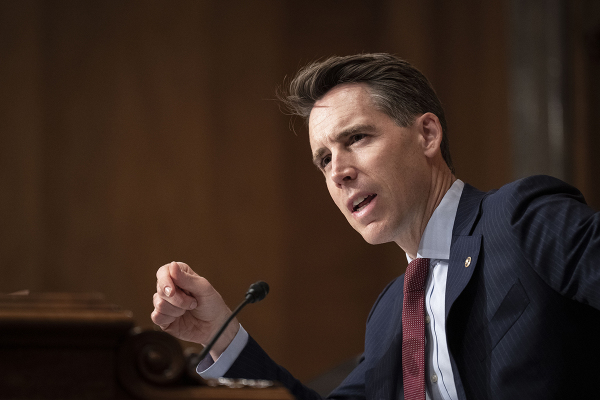Judge: Public Has Right to See Prop. 8 Trial Video
In another victory for foes of California’s Proposition 8, a federal district court judge in San Francisco ruled Monday that video recordings of the trial concerning the state’s ban on same-sex marriage should be made public.
Gay marriage advocates wanted the trial to be telecast citing a 2009 rule, issued by U.S. 9th Circuit Court of Appeals in San Francisco, allowing some television coverage of civil trials.
Defenders of Proposition 8 opposed broadcast of the trial, for fear that their witnesses would be subject to harassment and intimidation for supporting the ballot measure approved by California voters in 2008.
U.S. District Judge Vaughn Walker, who presided over the highly-publicized Proposition 8 case, was inclined to agree with the gay marriage advocates.
In fact, he not only planned to allow real-time streaming of the trial to several courthouses in other cities, but also to permit YouTube to post video after each day’s proceedings.
However, his plan was blocked by the U.S. Supreme Court, just before the trial got underway in January 2010, when the justices ruled that the proceedings could not be broadcast.
Despite the ruling, Walker went ahead with videotaping the trial, ostensibly for his private personal use. After the trial, the recordings were filed under seal. Neither side in the Proposition 8 case expected the videotape to go public.
But after deciding the Proposition 8 case, Walker unexpectedly walked away from the federal bench. Not long after that, he played a clip of the sealed trial recording during a presentation to law students in Arizona. The clip was aired on C-Span, which prompted defenders of Proposition 8 to demand that the judge return his recordings.
The court dispute over the Proposition 8 trial videotape fell to federal District Judge James Ware in San Francisco, who inherited trial-level issues in the Proposition 8 case from Walker. In his ruling Monday, which appears to directly conflict with the U.S. Supreme Court’s previous ruling, Ware said there was “no compelling reason” to keep Walker’s recordings under seal.
“Foremost among the aspects of the federal judicial system that foster public confidence in fairness and integrity of the process,” Ware wrote, “are public access to trials and public access to the record of judicial proceedings.”
The motion to unseal the Proposition 8 trial video was filed by two same-sex couples, sponsored by the Los Angeles-based American Foundation for Equal Rights, along with 13 media organizations.
In his order yesterday, Ware agreed with the plaintiffs that there is a common-law right of public access to trials, including video recordings.
The dispute over the sealed recordings is the latest controversy in which now-retired judge Walker has found himself since striking down Proposition 8 as unconstitutional.
In April of this year, he acknowledged to reporters that he is homosexual and has been in a relationship with a male doctor for about 10 years. Proposition 8 supporters protested that the judge either should have recused himself or disclosed his relationship status.
Unless Walker “disavowed any interest in marrying his partner,” they argued, in a previous appearance before Judge Ware, he had “a direct personal interest in the outcome of the case.”
Ware denied the claim against Walker, refusing to vacate the retired judge’s ruling against Proposition 8. Ware ruled that, the fact Walker was in a same-sex relationship, while sitting on a case deciding the constitutionality of gay and lesbian marriages, did not constitute a conflict of interest.
Meanwhile, Judge Ware has stayed until Sept. 30 his order allowing the Proposition 8 trial video to be released. That gives sponsors of the California ballot measure an opportunity to appeal his ruling.





















